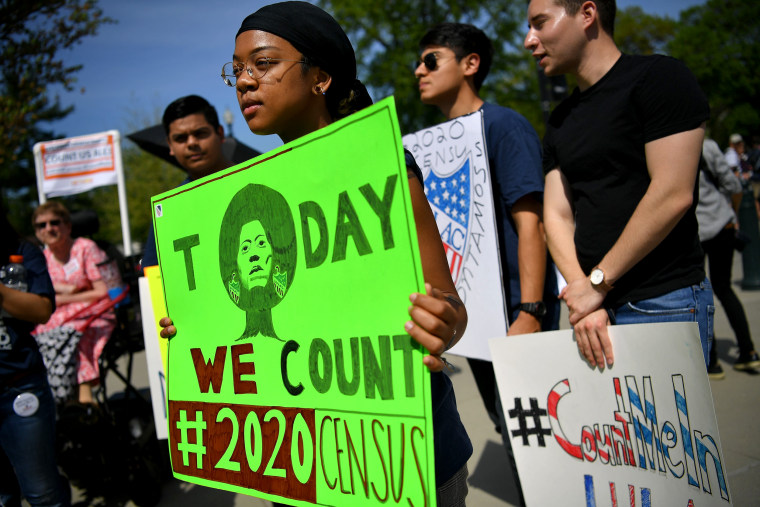The Supreme Court appears poised to hand Republicans an enormous victory this term. The balance of power in Congress and the winner of the next presidential election could both be, indirectly, decided by the Supreme Court’s ruling in this case.
The legal question in the case, United States Department of Commerce v. New York, hinges on whether the Department of Commerce, charged with administering the census, can ask respondents whether or not they are U.S. citizens in the census questionnaire. The census counts the number of people who live in our country ever ten years. It determines how much federal funding, how many members of congress, and how many electors to the Electoral College are allocated to each district in the nation. Perhaps the two most important things states can get from the federal government are money and people (representatives and electors), and the census determines both.
The balance of power in Congress and the winner of the next presidential election could both be, indirectly, decided by the Supreme Court’s ruling in this case.
But can the Department of Commerce, which is charged with administering the census, ask people whether or not they are U.S. citizens? We previously did ask this question, but we have not asked all U.S. households since 1950.
What is the legal background? The Enumeration Clause of the U.S. Constitution requires that Congress must count how many people live in the country. Congress delegated the authority to administer the census to the Department of Commerce as part of the Census Act.
The Secretary of Commerce has broad authority to administer the census, but under yet another federal law, the Administrative Procedure Act, may not administer the census in a fashion that is arbitrary and capricious.
The Department of Commerce claims that citizenship information is needed to help enforce the federal Voting Rights Act. It also argues that under the Census Act, Congress therefore has the power to determine how the census is administered, and this includes whether or not a citizenship question is added.
However, challengers argue that adding a citizenship question to the census will lead to a gross undercounting of people in immigrant-heavy districts. They argue that particularly illegal immigrants will be deterred from answering the census all together for fear that the government could arrest and deport them. In fact, the undercounting could be so problematic that it could violate the Constitutional requirement in the Enumeration Clause that every person in the country be counted.
The Census Bureau has indicated that as many as 6.5 million people may be not be counted if the citizenship question is included. In addition, challengers contend that Secretary Ross’ move to add a citizenship question is arbitrary, and was done without proper studies about the consequences of that decision, in violation of the Administrative Procedures Act.
All three lower courts that have ruled on whether the Department of Commerce can add a citizenship question have sided with challengers. The courts have characterized Commerce Secretary Wilbur Ross’ purported reason for the need for the citizenship question (to enforce the Voting Rights Act) as “highly implausible,” dubious, and politically motivated. Experts in the Census Bureau were unanimous in their decision that the citizenship questions should not be added to the census. And in fact, the Department of Justice has never used citizenship information to enforce the Voting Rights Act, passed 15 years after the government stopped asking about citizenship on the census.
And yet, despite all of the evidence that Ross’ stated reasons for adding a citizenship question were merely pre-textual, and that his real reasons are based on maximizing Republican power, it appears that Ross will find a more favorable audience at the Supreme Court. If the justices’ questions during oral arguments are any indication, the court is likely to split 5-to-4, with the conservative justices in the majority.
While, the case raises important legal questions about how much discretion should be afforded to federal agencies like with Department of Commerce, the political implications of the case cannot be overstated.
It not news that areas with higher numbers of immigrants tend to skew towards Democrats. Hence, a question on the census which asks about citizenship could be an enormous loss for Democrats, who dominate areas where there is likely to be undercounting problems, and a boon for Republicans.
Hundreds of billions of dollars of federal funding hang in the balance. And because the census determines the allocation of congressional seats and Electoral College votes, the outcome of federal elections (except in the senate) from 2022 until 2030 likely hang in the balance as well.
The Supreme Court must decide the case by the end of June. That is the time when the Census Bureau will start printing the 2020 census questionnaires.


